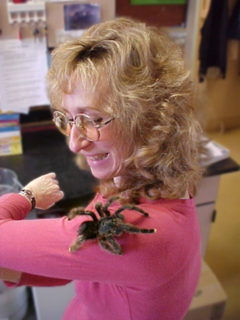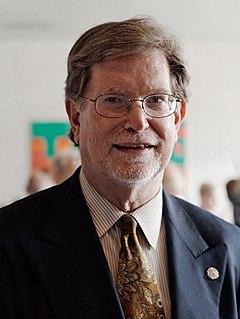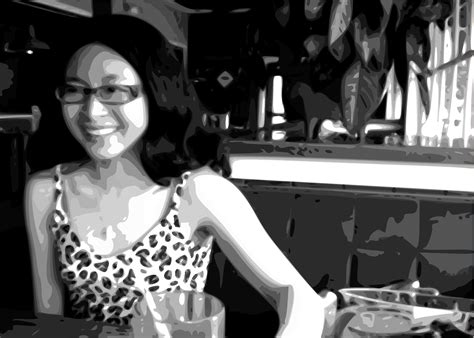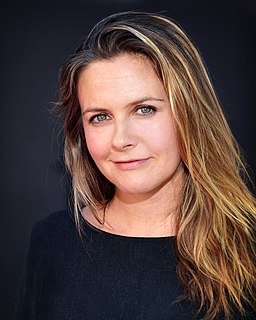A Quote by Sy Montgomery
It was not that I disliked people; some of them were interesting and kind. But even the nice ones were no more compelling or important to me than other creatures. Then, as now, to me humans are but one species among billions of other equally vivid and thrilling lives. I was never drawn to other children simply because they were human. Humans seemed to me a rather bullying species, and I was on the side of the underdog.
Related Quotes
While ants exist in just the right numbers for the rest of the living world, humans have become too numerous. If we were to vanish today, the land environment would return to the fertile balance that existed before the human population explosion. Only a dozen or so species, among which are the crab louse and a mite that lives in the oil glands of our foreheads, depend on us entirely. But if ants were to disappear, tens of thousands of other plants and animal species would perish also, simplifying and weakening land ecosystems almost everywhere.
In the past, humans hesitated when they took lives, even non-human lives. But society had changed, and they no longer felt that way. As humans grew stronger, I think that we became quite arrogant, losing the sorrow of 'we have no other choice.' I think that in the essence of human civilization, we have the desire to become rich without limit, by taking the lives of other creatures.
It is an odd fact of evolution that we are the only species on Earth capable of creating science and philosophy. There easily could have been another species with some scientific talent, say that of the average human ten-year-old, but not as much as adult humans have; or one that is better than us at physics but worse at biology; or one that is better than us at everything. If there were such creatures all around us, I think we would be more willing to concede that human scientific intelligence might be limited in certain respects.
Humans are particularly interesting; our culture is incredible, there's no doubt about that. In many respects, no other species matches ours. But in quite a few respects, they do, and that can help us, perhaps, to better understand our own culture. We look at the ways humans are similar to other animals, and at the ways they differ, rather than just saying, "We have culture and you don't."
What I'm starting to really grapple with, as someone who likes to tell stories, is that humans more than any other animal species seem open and willing to control, assert dominance, and behave cruelly. That's a whole kind of new nightmare to really have to face about your own species. That we are, in some respects, cannibalistic, in that we are willing to destroy ourselves. That's really something for me to be exploring over the long haul.
These boys, now, were living as we'd been living then, they were growing up with a rush and their heads bumped abruptly against the low ceiling of their actual possibilities. They were filled with rage. All they really knew were two darknesses, the darkness of their lives, which were now closing in on them, and the darkness of the movies, which had blinded them to that other darkness, and in which they now, vindictively, dreamed, at once more together than they were at any other time, and more alone.
Once upon a time ... the only autonomous intelligences we humans knew of were us humans. We thought then that if humankind ever devised another intelligence that it would be the result of a huge project ... a great mass of silicon and ancient transistors and chips and circuit boards ... a machine with lots of networking circuits, in other words, aping-if you will pardon the expression-the human brain in form and function. Of course, AIs did not evolve that way. They sort of slipped into existence when we humans were looking the other way.
Nin knew how much humans loved money, riches, and material things-though he never really could understand why. The more technologically advanced the human species got, the more isolated they seemed to become, at the same time. It was alarming, how humans could spend entire lifetimes engaged in all kinds of activities, without getting any closer to knowing who they really were, inside.
There is a beginning and end to all life - and to all human endeavors. Species evolve and die off. Empires rise, then break apart. Businesses grow, then fold. There are no exceptions. I'm OK with all that. Yet it pains me to bear witness to the sixth great extinction, where we humans are directly responsible for the extirpation of so many wonderful creatures and invaluable indigenous cultures. It saddens me to observe the plight of our own species; we appear to be incapable of solving our problems.
We have a very old conservation movement, particularly in the United States, which has focused on campaigns to protect endangered species: the spotted owl, the old-growth forest. But usually it stops there. To me, biodiversity is the full spectrum. Species conservation is not only about wilderness conservation. It?s also about protecting the livelihood of people even while changing the dominant relationship that humans have had with other species. In India, it?s an economic issue, not just an ecological one.
When people treat you mean, you dislike them for that, but not because of their person, who they are. I was born and raised in a segregated society, but when I left there, I had nobody I disliked other than the people that'd mistreated me, and that only lasted for as long as they were mistreating me.
To our human minds, computers behave less like rocks and trees than they do like humans, so we unconsciously treat them like people.... In other words, humans have special instincts that tell them how to behave around other sentient beings, and as soon as any object exhibits sufficient cognitive function, those instincts kick in and we react as though we were interacting with another sentient human being.
It must be stressed that there is nothing insulting about looking at people as animals. We are animals, after all. Homo sapiens is a species of primate, a biological phenomenon dominated by biological rules, like any other species. Human nature is no more than one particular kind of animal nature. Agreed, the human species is an extraordinary animal; but all other species are also extraordinary animals, each in their own way, and the scientific man-watcher can bring many fresh insights to the study of human affairs if he can retain this basic attitude of evolutionary humility.






































